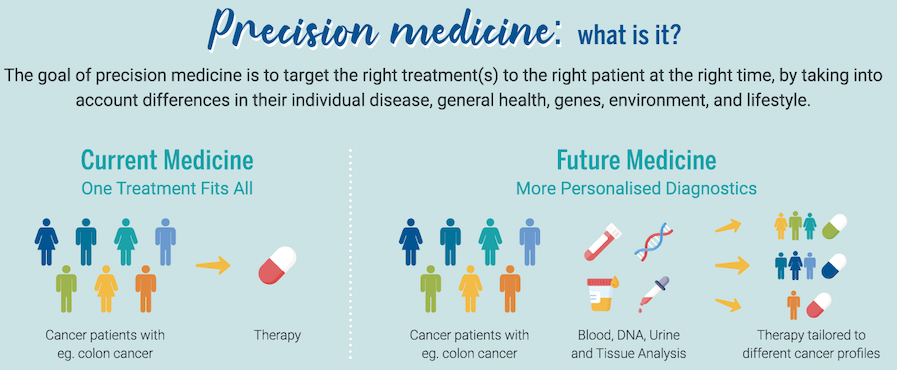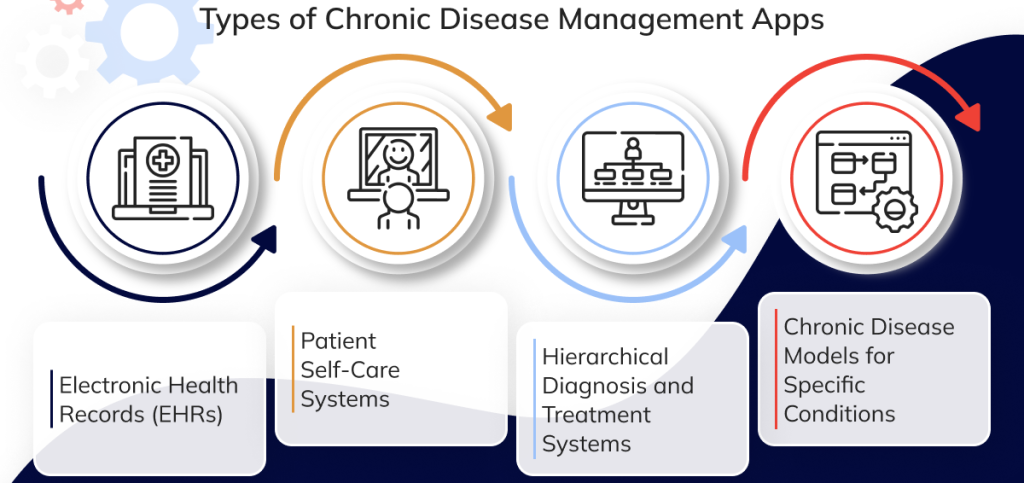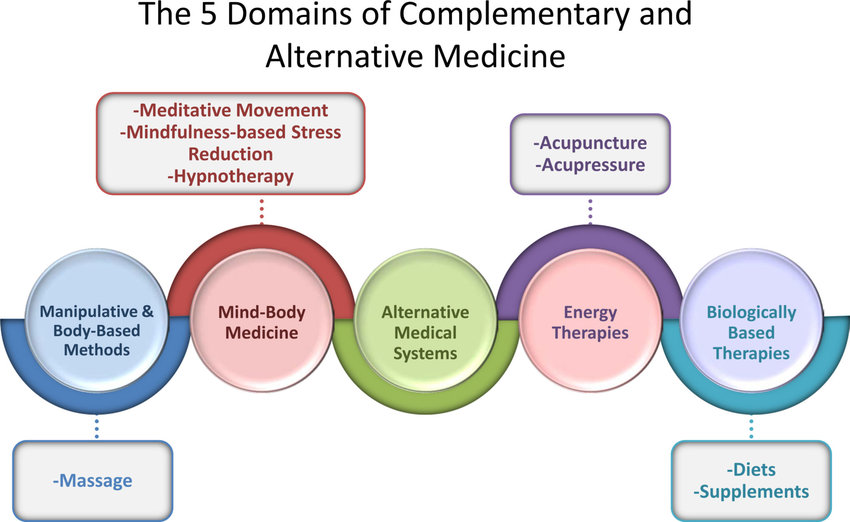
Table of Contents
The pursuit of a PhD in nursing is a testament to a deep commitment to advancing the profession and shaping the future of healthcare. This journey requires not only a passion for nursing but also a well-defined research question that holds the potential to contribute significant knowledge and impact. Choosing the right PhD nursing topic is crucial, as it sets the stage for your research journey and ultimately shapes your contributions to the field.
This article explores 20 compelling PhD nursing topics that offer diverse avenues for research, spanning various areas of practice and critical healthcare concerns. Each topic is accompanied by a brief overview, highlighting its relevance and potential research directions. While this list is by no means exhaustive, it provides a starting point for aspiring PhD nurses to explore potential research areas and ignite their own unique research interests.
Top 20 Powerful PhD Nursing Topic Ideas
1. Improving Health Outcomes for Underserved Populations:
This PhD nursing topic explores the unique health challenges faced by marginalized communities and seeks to develop culturally appropriate interventions to improve their access to quality healthcare and enhance their overall well-being. Research could focus on:
- Developing culturally sensitive health education programs: Tailoring health information to specific cultural beliefs and practices can increase engagement and improve health literacy.
- Addressing health disparities: Investigating the root causes of health disparities and developing evidence-based strategies to address them.
- Building trust and rapport with underserved communities: Exploring strategies to overcome barriers to healthcare access and foster a sense of trust between healthcare providers and underserved populations.
2. Implementing Precision Medicine in Nursing Practice:
The burgeoning field of precision medicine offers exciting possibilities for personalized healthcare. This PhD nursing topic explores the integration of genetic and other individualized data into clinical decision-making, aiming to optimize patient outcomes. Potential research directions include:
- Developing personalized care plans: Tailoring treatment plans based on individual genetic profiles, lifestyle factors, and environmental influences.
- Evaluating the effectiveness of precision medicine interventions: Assessing the impact of precision medicine on health outcomes, including patient satisfaction and cost-effectiveness.
- Addressing ethical considerations in precision medicine: Exploring the ethical implications of using genetic data in healthcare and ensuring patient privacy and autonomy.

3. Optimizing the Use of Technology in Nursing Care:
The rapid advancements in technology are revolutionizing healthcare delivery, providing nurses with new tools to enhance patient care. This PhD nursing topic investigates the effective integration of technology into nursing practice, focusing on:
- Developing and evaluating telehealth interventions: Assessing the effectiveness of remote patient monitoring and virtual consultations in managing chronic conditions.
- Leveraging mobile health applications: Investigating the use of mobile apps to improve patient adherence to medication regimens and promote self-management of health conditions.
- Ensuring the secure and ethical use of electronic health records: Exploring strategies to optimize the use of electronic health records while protecting patient privacy and data security.
4. Developing Innovative Strategies for Pain Management:
Pain management remains a significant challenge in healthcare, with a growing need for evidence-based approaches to address diverse patient needs. This PhD nursing topic examines innovative strategies for pain management, considering:
- Investigating alternative pain management techniques: Exploring the efficacy of non-pharmacological interventions such as mindfulness, acupuncture, and massage therapy.
- Addressing opioid addiction and overdose: Developing interventions to prevent opioid misuse and provide support for patients struggling with opioid addiction.
- Improving the management of chronic pain: Investigating strategies to improve pain assessment, symptom management, and quality of life for patients living with chronic pain.
5. Promoting Healthy Aging and Geriatric Care:
As the population ages, the need for skilled geriatric nurses continues to grow. This PhD nursing topic examines the complex challenges of aging and explores strategies to promote healthy aging and optimize geriatric care. Research areas could include:
- Addressing the unique needs of older adults: Investigating the physical, cognitive, and social changes associated with aging and developing interventions to address specific challenges.
- Preventing falls and other age-related health complications: Developing and evaluating interventions to improve balance, mobility, and safety for older adults.
- Promoting cognitive health and preventing dementia: Exploring strategies to maintain cognitive function and delay the onset of dementia.
6. Improving Mental Health Outcomes in Nursing Care:
Mental health conditions are increasingly prevalent, underscoring the need for effective interventions and support systems within the healthcare system. This PhD nursing topic focuses on enhancing mental health outcomes in nursing practice by exploring:
- Developing integrated mental health care models: Investigating models of care that seamlessly integrate mental health services into primary care settings.
- Providing culturally competent mental health services: Tailoring mental health interventions to meet the unique needs of diverse populations and address cultural barriers to care.
- Reducing the stigma associated with mental illness: Exploring strategies to promote understanding and acceptance of mental health conditions and encourage early intervention.

7. Examining the Impact of Nurse Leadership on Quality of Care:
Effective nurse leadership is crucial for creating a supportive and empowering work environment that fosters high-quality patient care. This PhD nursing topic investigates the relationship between nurse leadership and quality of care, exploring:
- Developing leadership skills among nurses: Investigating the effectiveness of different leadership training programs and identifying the key competencies for successful nurse leaders.
- Analyzing the impact of leadership style on patient outcomes: Examining the relationship between different leadership styles (transformational, transactional, etc.) and patient satisfaction, safety, and clinical outcomes.
- Exploring the role of nurse leaders in creating a positive work environment: Investigating how nurse leaders can foster collaboration, communication, and a culture of respect and safety.
8. Evaluating the Effectiveness of Nursing Interventions in Acute Care:
Acute care settings present unique challenges for nurses, requiring rapid decision-making and complex care coordination. This PhD nursing topic investigates the effectiveness of various nursing interventions in the acute care setting, aiming to:
- Developing evidence-based guidelines for critical care nursing: Analyzing the impact of specific interventions on patient outcomes in critical care settings.
- Improving communication and collaboration among healthcare providers: Investigating strategies to enhance communication and coordination among nurses, physicians, and other healthcare professionals in acute care.
- Optimizing the use of technology in acute care: Assessing the impact of technology on patient safety, medication administration, and communication in acute care settings.
9. Promoting Patient Safety and Reducing Medical Errors:
Patient safety is a paramount concern in healthcare, with a constant need to identify and address potential risks. This PhD nursing topic focuses on developing strategies to reduce medical errors and promote a culture of safety in healthcare settings. Research areas could include:
- Developing and implementing systems for early detection of adverse events: Investigating the use of data analytics and predictive modeling to identify patients at risk for potential medical errors.
- Improving communication and teamwork among healthcare providers: Exploring the role of communication and collaboration in preventing errors and improving patient safety.
- Promoting a just culture for reporting errors: Investigating strategies to create an open and transparent reporting system that encourages nurses to report errors without fear of retribution.
10. Optimizing the Management of Chronic Diseases:
Chronic diseases represent a significant burden on healthcare systems and individual well-being. This PhD nursing topic explores strategies to optimize the management of chronic diseases, focusing on:
- Developing patient-centered care models for chronic disease management: Investigating the impact of patient-centered interventions on medication adherence, self-management skills, and quality of life.
- Addressing the social determinants of health in chronic disease management: Exploring the role of social factors such as poverty, education, and access to healthcare in chronic disease outcomes.
- Utilizing technology to support chronic disease self-management: Investigating the effectiveness of telehealth interventions and mobile health apps in empowering patients to manage their chronic conditions.

11. Exploring the Ethical Implications of Advanced Nursing Practice:
As the scope of nursing practice expands, it is essential to examine the ethical considerations associated with advanced nursing roles. This PhD nursing topic delves into the ethical dilemmas encountered by nurses in areas such as:
- Providing end-of-life care: Exploring the ethical complexities of providing palliative care and making difficult decisions about end-of-life interventions.
- Managing patient confidentiality and privacy: Investigating the ethical implications of using electronic health records and sharing patient information.
- Engaging in advocacy for vulnerable populations: Exploring the role of nurses in advocating for patients’ rights and addressing social injustices that affect health outcomes.
12. Investigating the Impact of Nurse Staffing on Patient Outcomes:
Nurse staffing levels and ratios have a significant impact on patient safety and quality of care. This PhD nursing topic examines the relationship between nurse staffing and patient outcomes, exploring:
- Analyzing the impact of nurse-to-patient ratios on patient safety: Investigating the relationship between staffing levels and the incidence of adverse events, medication errors, and other patient safety concerns.
- Exploring the effects of nurse burnout and fatigue on patient care: Investigating the impact of nurse staffing shortages and workload on nurse burnout and its potential consequences for patient outcomes.
- Developing strategies to optimize nurse staffing models: Exploring innovative approaches to nurse staffing that balance patient needs with the well-being of nurses and the sustainability of healthcare systems.
13. Developing Innovative Strategies for Health Promotion and Disease Prevention:
Health promotion and disease prevention are essential for maintaining individual and community health. This PhD nursing topic examines innovative strategies to promote healthy lifestyles and prevent chronic diseases, focusing on:
- Implementing community-based health promotion programs: Developing and evaluating interventions that address health disparities and promote healthy behaviors within specific communities.
- Utilizing technology to support health promotion efforts: Investigating the use of mobile health applications, social media, and other technologies to enhance health promotion and disease prevention efforts.
- Promoting health literacy and self-management skills: Developing strategies to empower individuals to take responsibility for their health and make informed decisions about their healthcare.
14. Examining the Role of Nurses in Global Health:
Nurses play a crucial role in addressing global health challenges and improving health outcomes worldwide. This PhD nursing topic explores the diverse roles of nurses in global health, examining:
- Developing culturally sensitive health interventions for diverse populations: Adapting health promotion programs and disease prevention strategies to meet the unique needs of different cultures and communities.
- Addressing global health inequities: Investigating the root causes of health disparities in developing countries and developing strategies to improve access to healthcare for marginalized populations.
- Promoting health education and training for global health professionals: Exploring the role of nurses in training healthcare professionals in developing countries and strengthening global health workforce capacity.
15. Investigating the Impact of Climate Change on Health and Nursing Practice:
Climate change poses significant threats to human health, with potential consequences for physical and mental well-being. This PhD nursing topic explores the impact of climate change on health and nursing practice, examining:
- Developing strategies to mitigate the health effects of climate change: Investigating strategies to reduce the risk of heat-related illnesses, air pollution, and other health consequences of climate change.
- Promoting environmental sustainability in healthcare settings: Exploring ways to reduce the environmental footprint of healthcare institutions and promote sustainable practices.
- Addressing the psychological and social impacts of climate change: Investigating the mental health implications of climate change and developing interventions to support individuals and communities affected by climate change.
16. Exploring the Integration of Complementary and Alternative Therapies in Nursing Practice:
Complementary and alternative therapies (CAM) are gaining popularity as patients seek holistic approaches to healthcare. This PhD nursing topic examines the integration of CAM into nursing practice, focusing on:
- Evaluating the effectiveness of CAM for specific health conditions: Investigating the evidence base for the use of CAM in managing chronic pain, anxiety, depression, and other health concerns.
- Developing protocols for integrating CAM into nursing care: Creating standardized guidelines for the safe and effective use of CAM in various clinical settings.
- Addressing the ethical and regulatory considerations of CAM: Exploring the legal and ethical issues related to the use of CAM in healthcare settings.

17. Examining the Role of Informatics in Nursing Research:
Informatics plays an increasingly vital role in nursing research, providing new tools for data analysis, data visualization, and knowledge dissemination. This PhD nursing topic investigates the use of informatics in nursing research, exploring:
- Developing innovative methods for data analysis and visualization: Investigating the use of big data analytics, machine learning, and other informatics tools to analyze large datasets and identify meaningful patterns.
- Utilizing informatics to disseminate research findings: Exploring the use of digital platforms, online repositories, and other informatics tools to share research findings with a wider audience.
- Ensuring the ethical use of informatics in nursing research: Addressing the ethical implications of using patient data and protecting patient privacy in informatics research.
18. Investigating the Impact of Social Media on Health and Nursing Practice:
Social media platforms have become ubiquitous, offering both opportunities and challenges for healthcare professionals. This PhD nursing topic explores the impact of social media on health and nursing practice, examining:
- Utilizing social media for health promotion and education: Investigating the effectiveness of social media campaigns in promoting healthy lifestyles, raising awareness of health issues, and connecting with patients.
- Addressing the ethical considerations of social media in healthcare: Exploring the ethical implications of using social media to communicate with patients, share health information, and promote healthcare services.
- Analyzing the impact of social media on patient health behaviors: Investigating the influence of social media on patient perceptions of health, decision-making about healthcare, and adherence to treatment plans.
19. Developing Innovative Strategies for Workplace Wellness and Nurse Well-being:
Nurse burnout, stress, and fatigue are significant concerns within the nursing profession. This PhD nursing topic investigates strategies to promote workplace wellness and improve nurse well-being, exploring:
- Developing interventions to prevent and manage nurse burnout: Investigating the effectiveness of stress management techniques, mindfulness practices, and other interventions to reduce nurse burnout and promote mental well-being.
- Creating a supportive work environment for nurses: Exploring the role of leadership, organizational culture, and workplace policies in fostering a positive and supportive work environment.
- Promoting a culture of self-care and resilience among nurses: Encouraging nurses to prioritize their own well-being and develop strategies for self-care and resilience.
20. Examining the Role of Nurses in Disaster Management and Public Health Emergencies:
Nurses play a critical role in responding to disasters and public health emergencies. This PhD nursing topic explores the diverse roles of nurses in disaster preparedness, response, and recovery, examining:
- Developing effective disaster preparedness plans for healthcare facilities: Investigating the effectiveness of different disaster preparedness plans and identifying key elements for successful disaster response.
- Addressing the unique health needs of populations affected by disasters: Investigating the health consequences of disasters and developing strategies to provide appropriate medical care and support services.
- Promoting community resilience and disaster preparedness: Exploring strategies to build community resilience and empower individuals to prepare for and respond to disasters.

The Bottom Line
These PhD nursing topics provide a glimpse into the diverse and impactful research areas that nurses are exploring to shape the future of healthcare. By pursuing these PhD nursing topics, nurses can contribute to advancements in clinical practice, patient safety, health promotion, and social justice, ultimately improving the well-being of individuals and communities around the world.
Get Professional Help with PhD Nursing Papers
At PhD Nurse Writer, we are the experts to engage when seeking help with nursing papers and assignments. We can assist you with choosing powerful PhD nursing topics, paper writing, proofreading, editing, formatting and plagiarism removal. We specialize in crafting original and top notch nursing research papers, essays, case studies and dissertations.





